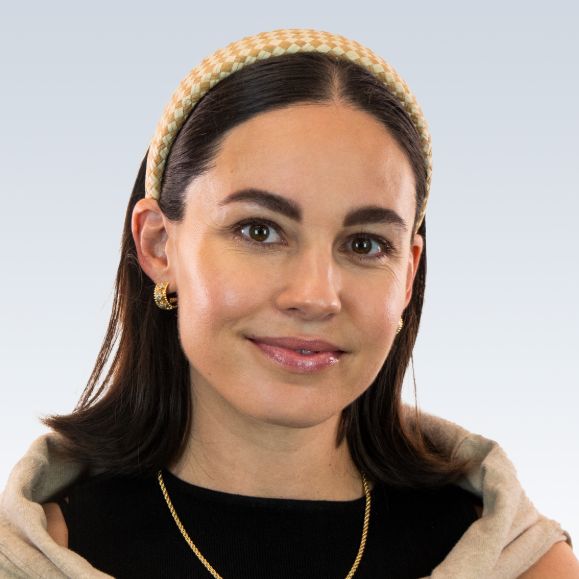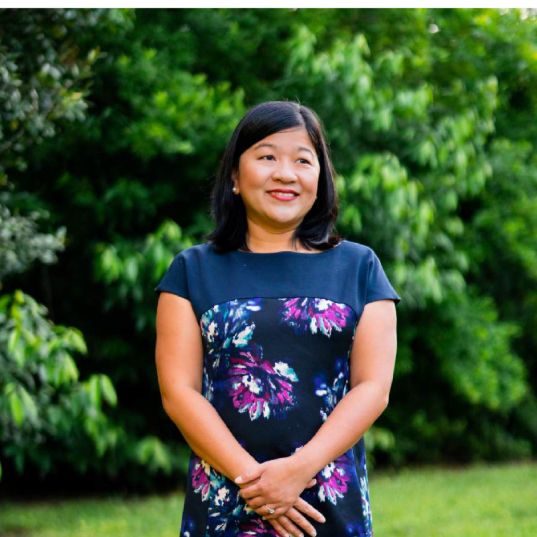Everyday Impact of Anxiety
Anxiety can make everyday tasks feel heavy, from getting stuck on I-4 and worrying you’ll be late to work, to feeling your heart race in a busy Publix or at a crowded theme park. It can show up at work as trouble focusing during a long shift, second-guessing emails, or dreading meetings, and at home as irritability, sleepless nights, or canceling plans. Relationships can feel strained when you fear saying the wrong thing, avoid social gatherings in Winter Park or around Lake Eola, or need constant reassurance. Even small decisions—where to park downtown, whether to brave the afternoon storms, or how to juggle bills—can feel overwhelming and exhausting.
How to Recognize Anxiety
- Feeling on edge or worrying a lot, like stressing about hurricane season updates, heavy I‑4 traffic, or work shifts in Orlando’s busy tourism spots.
- Physical signs such as a racing heart, sweaty palms, muscle tension, stomachaches, or headaches that seem to come out of nowhere.
- Trouble sleeping or restless nights, replaying conversations or planning for every “what if,” even after a long day at the parks or school.
- Difficulty concentrating in class or at work (for example at UCF or in hospitality), losing track of tasks, or feeling mentally “foggy.”
- Avoiding crowded places or social plans—like skipping theme parks, festivals, or church events—because it feels overwhelming.
- Sudden waves of panic or dread, feeling short of breath or dizzy, or needing to leave a situation quickly to feel safe.
Contributing Causes and Risk Factors
Anxiety often arises from a mix of biological factors like genetics, brain chemistry, and sleep or hormonal changes, as well as psychological influences such as past stress, trauma, or perfectionism. Environmental stressors in Orlando—like fast-paced service and tourism work, financial or housing pressures, severe weather events, or daily traffic—can also heighten symptoms. These influences interact in complex ways, and experiencing anxiety is not a personal failure or lack of strength. Understanding these multifactorial causes can help you approach support and treatment with compassion for yourself or a loved one.
Treatment and Recovery Options
Evidence-based care for anxiety works and is widely available. Cognitive Behavioral Therapy (CBT) teaches you to identify and reframe anxious thoughts and build coping skills that reduce symptoms day to day. Exposure therapy helps you face feared situations gradually and safely, retraining your brain to dial down fear responses. Acceptance and Commitment Therapy (ACT) and mindfulness-based approaches build psychological flexibility and calm through present-moment skills. Medication options like SSRIs or SNRIs, often paired with therapy, can further ease symptoms and help you make faster progress.
Orlando offers strong support and practical tools to keep you moving forward. Join peer-led support groups through NAMI Greater Orlando, or connect with outpatient programs and specialized clinicians at Orlando Health and AdventHealth; UCF and community clinics also provide low-cost counseling. Use self-help strategies daily: paced breathing, sleep routines, limiting caffeine, and regular movement in places like Lake Eola Park or the Orlando Urban Trail. Try mindfulness or yoga classes offered at local studios and libraries, and use evidence-based apps to practice skills between sessions. If you’re unsure where to start, call 988 for immediate support or 211 to find local resources, then schedule your first appointment this week.
Why Professional Guidance Matters
Managing Anxiety is easier with a licensed clinician who provides evidence-based care, ethical standards, and accountability that protect your safety and progress. Licensed providers can offer flexible telehealth options, and many accept insurance, helping make treatment more affordable. Licensure matters in ensuring quality, specialized training, and appropriate supervision for complex Anxiety needs. MiResource helps people in Orlando quickly filter for licensed, in-network providers—including those offering telehealth—so you can get the right support faster.
Where to Begin Your Therapist Search in Orlando
Start by typing “Anxiety” into MiResource’s Orlando directory to see therapists who focus on anxiety care. Then narrow your options by filtering for specialty, therapy approach (like CBT or mindfulness-based), insurance accepted, preferred language, real-time availability, and your neighborhood in Orlando. Read profiles to compare experience, methods, and scheduling so you can quickly spot strong matches. Remember, the most important factor in effective therapy is the personal fit between you and your therapist. Explore the MiResource directory now to find the right Anxiety therapist in Orlando.
Local Support and Community Connections
Orlando’s fast-growing, diverse community—including a large Puerto Rican and broader Latinx population, hospitality and theme-park workers with shifting schedules, UCF and Valencia students, and LGBTQ+ residents—faces unique anxiety stressors tied to tourism-driven work hours, housing costs, and storm seasons. If you’re in Parramore, Pine Hills, or around the UCF/Waterford Lakes corridor, look for bilingual and evening options; downtown and Thornton Park offer more walkable choices, while Lake Nona’s Medical City serves South Orlando and veterans. Plan around I-4 and 408 congestion, especially rush hours and event days near the Amway Center and Camping World Stadium; LYNX buses and SunRail can help but have limited late-night service, so confirm schedules or consider telehealth if transportation is a barrier.
Local help includes Aspire Health Partners (outpatient anxiety treatment, groups, and the COPES crisis line 407-822-5055), Mental Health Association of Central Florida’s Outlook Clinic for uninsured adults, NAMI Greater Orlando peer groups and classes, UCF CAPS for students, The Center Orlando for LGBTQ+-affirming referrals, Hispanic Family Counseling for Spanish-speaking care, and the Orlando VA Medical Center in Lake Nona for veterans. In an immediate crisis, call or text 988, dial 911 for emergencies, or go to AdventHealth Orlando or Orlando Health ORMC; 211 (Heart of Florida United Way) can connect you to local counseling, transportation assistance, and sliding-scale options. You’re not alone—reach out, and we’ll help you find support that fits your neighborhood, schedule, and language.
If You Need Help Right Away
If you have severe anxiety with chest pain, trouble breathing, fainting, uncontrollable panic, confusion, or thoughts of harming yourself or others, seek emergency care now. Call or text 988 for the Suicide & Crisis Lifeline, call 911 if you’re in immediate danger, or dial 211 (Heart of Florida United Way) for local crisis connections; Crisis Text Line: text HOME to 741741. Orlando emergency departments: Orlando Health Orlando Regional Medical Center (321-841-5111) and AdventHealth Orlando (407-303-5600); urgent care options include AdventHealth Centra Care (407-200-2273). Orlando-area crisis response: Aspire Health Partners (Access/Crisis support, including mobile response coordination; 407-875-3700).
Questions You May Have
1. What does living with Anxiety feel like?
Living with anxiety can feel like carrying a knot in your stomach while your mind races through what-ifs, even on an ordinary day. You might feel on edge in Orlando traffic or crowded places, needing extra time to regroup after errands or a long day. Sleep can be restless, and little things—like sudden storms or a busy grocery line—can feel bigger than they seem. Everyone’s experience is different, and it’s okay if some days feel manageable and others feel overwhelming—you’re not alone.
2. How do professionals diagnose Anxiety?
In Orlando, anxiety can be diagnosed by licensed mental health professionals such as psychologists, psychiatrists, licensed mental health counselors, and sometimes primary care providers. The process typically involves a calm conversation about your symptoms and history, brief questionnaires or checklists, and ruling out other medical causes, using standard criteria like the DSM-5. It’s a collaborative, judgment-free evaluation where your concerns, goals, and comfort guide the pace. Many people find that simply talking through their experiences brings clarity and relief, and you can ask questions at any step.
3. What treatment options usually help with Anxiety?
Effective, evidence-based treatments for anxiety include cognitive behavioral therapy (CBT), exposure-based therapies, mindfulness and acceptance approaches (like ACT), and, when appropriate, medications such as SSRIs or SNRIs. Many people also benefit from skills training, stress-management techniques, and healthy routines like regular sleep, exercise, and reducing substance use. In Orlando, you can find therapists and prescribers who tailor these options to your unique needs, preferences, and goals. With the right fit, most people see meaningful improvement—explore your options and take the next step when you’re ready.
4. How do I explain my Anxiety to others?
It’s your choice if and how much you share—start small and only with people you trust in Orlando or elsewhere. You might say, “I live with anxiety, which can make crowds/meetings hard; I’m working on it and would appreciate patience,” and offer a specific way they can support you. Set clear boundaries like, “I’m sharing to keep you in the loop, not to get advice,” or, “If I step out to regroup, please give me a few minutes.” With coworkers, keep it brief and needs-focused (e.g., “If I’m quiet after a hectic call, I’m just resetting—email works best then”). Remember, you deserve to communicate in ways that feel safe and validating, and it’s okay to change what you share over time.
5. What first step should I take if I think I have Anxiety?
Start by noticing your symptoms and how they impact your day—jot down what triggers your anxiety and how you cope. Share what you’re experiencing with a trusted friend or family member so you don’t carry it alone. Then reach out to a mental health professional for an assessment and guidance. Use the MiResource directory to quickly find and contact Anxiety therapists in Orlando who fit your needs and availability.













